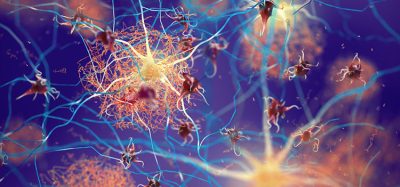Scientists discover new molecule that kills hard-to-treat cancers
Posted: 22 June 2022 | Ria Kakkad (Drug Target Review) | No comments yet
Scientists have synthesised a new molecule that could kill a broad spectrum of hard-to-treat cancers, including triple-negative breast cancer, by exploiting a weakness in cells not previously targeted by other drugs.


A researcher at the University of Texas at Dallas, US, has synthesised a new molecule that could kill a broad spectrum of hard-to-treat cancers, including triple-negative breast cancer, by exploiting a weakness in cells not previously targeted by other drugs. The study, which was recently published in Nature Cancer, describes that the research was carried out in isolated cells, in human cancer tissue and in human cancers grown in mice.
The team tested a novel compound he synthesised called ERX-41 for its effects against breast cancer cells, both those that contain oestrogen receptors (ERs) and those that do not. While there are effective treatments available for patients with ER-positive breast cancer, there are few treatment options for patients with triple-negative breast cancer (TNBC), which lacks receptors for oestrogen, progesterone, and human epidermal growth factor 2. TNBC generally affects women under 40 and has poorer outcomes than other types of breast cancer.
“The ERX-41 compound did not kill healthy cells, but it wiped out tumour cells regardless of whether the cancer cells had oestrogen receptors,” said Dr Jungo-Mo Ahn, a co-corresponding author of the study. “In fact, it killed the triple-negative breast cancer cells better than it killed the ER-positive cells. This was puzzling to us at the time. We knew it must be targeting something other than oestrogen receptors in the TNBC cells, but we did not know what that was.”
The researchers discovered that ERX-41 binds to a cellular protein called lysosomal acid lipase A (LIPA). LIPA is found in a cell structure called the endoplasmic reticulum, an organelle that processes and folds proteins.
“For a tumour cell to grow quickly, it has to produce a lot of proteins, and this creates stress on the endoplasmic reticulum,” Ahn said. “Cancer cells significantly overproduce LIPA, much more so than healthy cells. By binding to LIPA, ERX-41 jams the protein processing in the endoplasmic reticulum, which becomes bloated, leading to cell death.”
The research team also tested the compound in healthy mice and observed no adverse effects.
The researchers fed the compound to mice with human forms of cancerous tumours, and the tumours got smaller. The molecule also proved effective at killing cancer cells in human tissue gathered from patients who had their tumours removed.
They also found that ERX-41 is effective against other cancer types with elevated endoplasmic reticulum stress, including hard-to-treat pancreatic and ovarian cancers and glioblastoma, the most aggressive and lethal primary brain cancer.
Related topics
Disease Research, Molecular Biology, Molecular Targets, Screening, Small molecule
Related conditions
Brain cancer, Triple-negative breast cancer
Related organisations
University of Texas at Dallas








